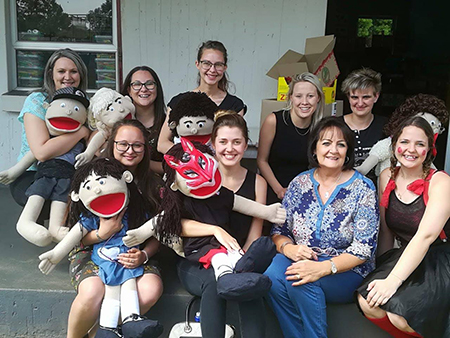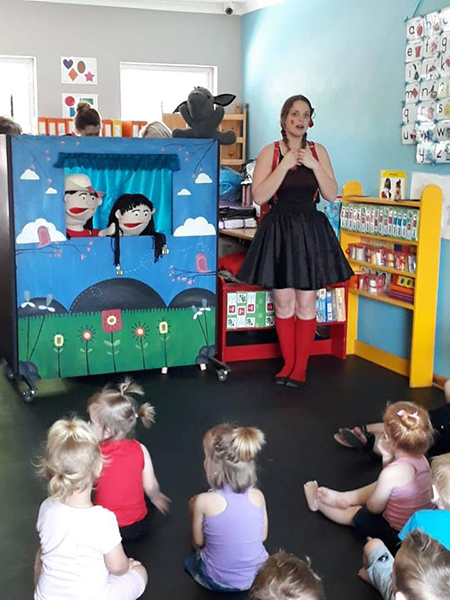Puppetry plays an important role in sharing knowledge, especially when it comes to young children.
According to Dr Ria Booysen, a senior lecturer at the North-West University’s (NWU’s) Faculty of Education, putting puppets into the hands of educators, can set the stage for valuable learning opportunities in many developmental areas.
“Puppets are engaging toys that can help support oral language skills and communication, social and emotional development, and help children learn and understand the world around them through safe, imaginative play,” explains Dr Booysen.
With this in mind students in the BEd Foundation Phase course are taught puppetry skills from their first year of study. During their fourth year, these students have to practically incorporate puppets in their lesson plans, create life-like puppets themselves and be able to write interactive scripts inclusive of a moral lesson. In short: master the technical aspects of effective puppetry.
An annual puppetry workshop serves as a point of departure after which students have to develop their own characters and puppets. This includes methodological features such as manoeuvrability, different vocal accents and the identity of the puppets. Through the art of puppetry the students are empowered to draw on all the knowledge and skills obtained during their four years of study within the scope of foundation phase education.
This year saw the students perform several puppet shows at pre-primary schools in the Vanderbijlpark district.
“Since puppetry encapsulates elements of all art forms such as literature, painting, sculpture, dance and drama it enables students to develop their creative abilities to the full,” explains Dr Booysen. She furthermore elucidates that when the students create their scripts for a puppet show they have to adhere to strict set criteria. These include interactivity, being age conscious, linking to the content of the education curricula and making use of additional props to aid understanding and meaning.
Dr Booysen says that the students can furthermore use their puppets to earn extra money by performing at schools and day-care centres and by doing so give way to supplementary entrepreneurial development. The puppets are used to aid children in acquiring new knowledge, to work through trauma, to explain sensitive issues such as sexual abuse; racism and bullying as well as to enhance vocabulary and communication skills.

Dr Booysen with a group of students and their puppets.

A student narrating a puppet show to the youngsters at a nursery school.
